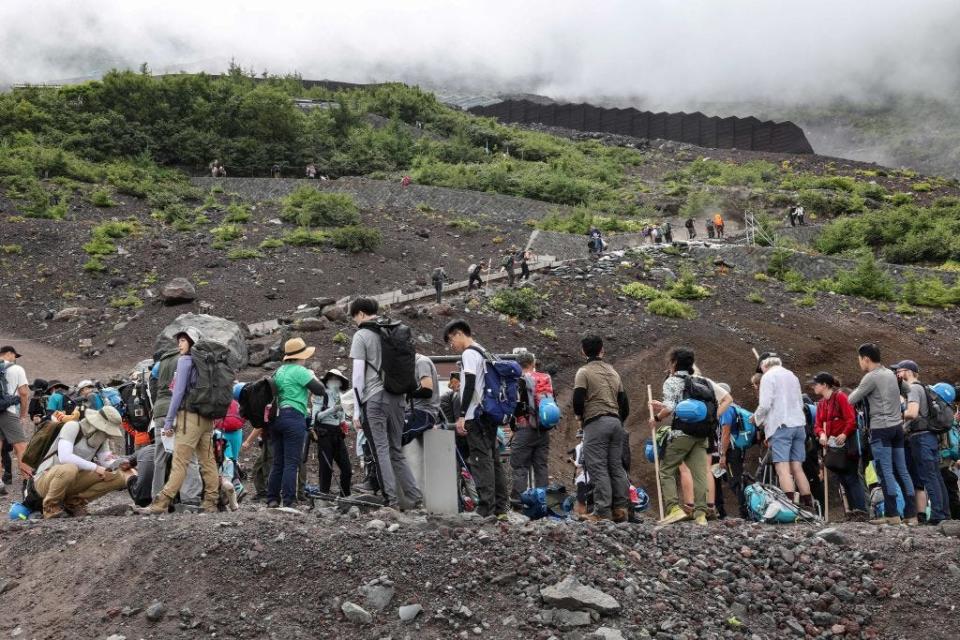Mount Fuji adds reservation system as it battles litter and human traffic jams
Many travelers hoping to experience one of Japan’s top attractions will soon need to make online reservations in advance to do so.
The tallest mountain in Japan and a place of cultural significance, Mount Fuji, announced on Monday a reservation system with a daily limit of 3,000 slots for its most popular trail, the Yoshida Trail. The new system, which will start taking reservations at 10 p.m. on May 20 for hikes between July 1 and Sept. 10, aims to crack down on overtourism and make the trek safer.
The trail already has a cap of 4,000 climbers per day, and under the new system, 3,000 of those hikers will be able to pay the 2,000 yen (about $13) non-refundable fee at least a day before their trek. Groups of up to 100 people can make a reservation. To access the trail, climbers will show their QR code.
The other 1,000 can pay on the day of their hike before setting off, if they get there before the limit is reached.
The climbing season for the UNESCO World Heritage Site is only for a few months during the summer, and around 300,000 people make the trek each season. There are four trails that ascend the mountain, but the Yoshida trail is the easiest and most accessible from Tokyo, making it the busiest.
Destinations behind a paywall? What to know about the increasing tourist fees worldwide.

Many travelers not making the actual climb visit the Yoshida Trail’s fifth station, which is easily accessible by public transportation from Tokyo, to witness the majesty of the mountain.
The mountain and its surrounding areas have been struggling with human traffic jams and large amounts of litter. A local nonprofit organization named Fujisan Club collected 850 tons of trash between 2004 and 2018 just from the foothills of the peak.
“Overtourism – and all the subsequent consequences like rubbish, rising CO2 emissions and reckless hikers – is the biggest problem facing Mount Fuji,” Masatake Izumi, a government official of the area that's the gateway to Mount Fuji and expert on the famed peak, told CNN last year.
Along with the new reservation system, Mount Fuji will install a new gate at the entrance of the fifth station. The gates to the mountain will be closed from 4 p.m. until 3 a.m. in a further effort to reduce crowding. “Many climbers ascending Mt. Fuji want to witness the sunrise at the summit, meaning many will make the climb during the night, resulting in overcrowding and climbers descending the mountain without rest,” Mount Fuji’s official website stated.
The new reservation system is only for admission through the trail gates and not for the mountain huts, which are dorm-style accommodations originally built as emergency shelters along the trail. Travelers without mountain hut reservations will not be allowed to hike between 4 p.m. and 3 a.m.
Local communities have also been strained by the influx of tourists to the mountain. The resort town Kawaguchiko, which offers a stunningly famous view of the 3,776-meter mountain, said last month it will install a large mesh net to block the view. Tourists have been illegally parking and climbing on the roofs of local businesses in attempts to get the perfect picture of the mountain.
Kathleen Wong is a travel reporter for USA TODAY based in Hawaii. You can reach her at kwong@usatoday.com.
This article originally appeared on USA TODAY: Mount Fuji adds reservation system for its most popular trail

